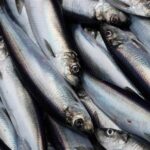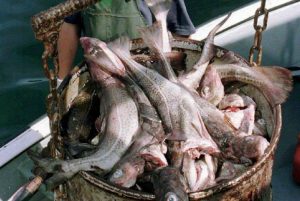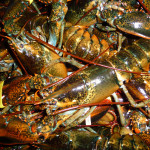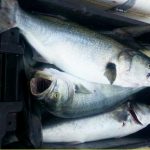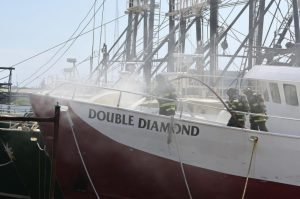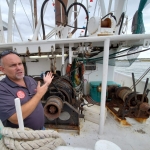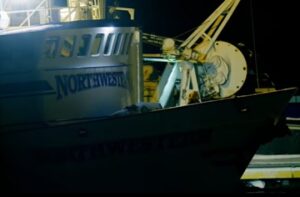Tag Archives: seafood fraud.
What You Need to Know About Cod
As a large, naturally abundant fish, cod has been eaten by various human populations for centuries. 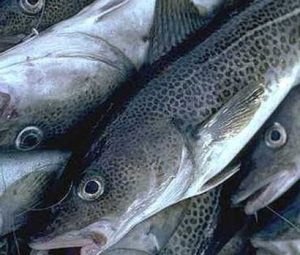 While both of America’s Atlantic cod fisheries are overfished, American stocks of Pacific cod (Gadus macrocephalus) are not. What’s more, various other cod fisheries are located around the globe, some over-exploited, others not. The fish’s prevalence, along with its suitability for eating, means that despite dwindling numbers, cod remains a stalwart of many cuisines. However, there are many things about cod that aren’t widely known. It might surprise some people to learn that cod hunt for prey. They eat a variety of animals, ranging from worms to lobsters and even small fish. Such a diet means cod are capable of growing up to an impressive length of six feet and a weight of over 100 pounds. more, >>click to read<< 11:52
While both of America’s Atlantic cod fisheries are overfished, American stocks of Pacific cod (Gadus macrocephalus) are not. What’s more, various other cod fisheries are located around the globe, some over-exploited, others not. The fish’s prevalence, along with its suitability for eating, means that despite dwindling numbers, cod remains a stalwart of many cuisines. However, there are many things about cod that aren’t widely known. It might surprise some people to learn that cod hunt for prey. They eat a variety of animals, ranging from worms to lobsters and even small fish. Such a diet means cod are capable of growing up to an impressive length of six feet and a weight of over 100 pounds. more, >>click to read<< 11:52
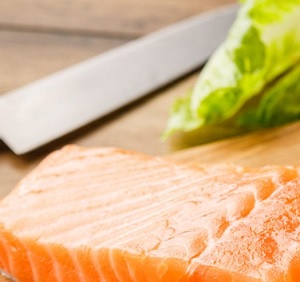
There’s Something Fishy About Our Fish
Charlie the Tuna does plenty of business in these parts. That’s because a lot of what we think is grade A tuna is anything but. The same goes for wild salmon, lemon sole, red snapper, and a dozen other species of premium priced fish.,, A recent study by the New York State Office of the Attorney General found that fraud is much more widespread than originally realized — it costs consumers and fishermen millions of dollars a year. >click to read<
Obama Administration Issuing New Rules to Curb Illegal Fishing, Seafood Fraud
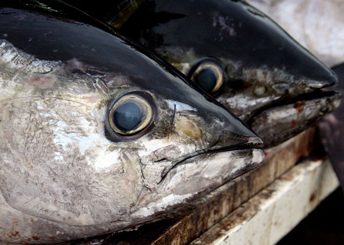 The Obama administration is issuing new rules it says will crack down on illegal fishing and seafood fraud by preventing unverifiable fish products from entering the U.S. market. The new protections are called the Seafood Import Monitoring Program, and they are designed to stop illegally fished and intentionally misidentified seafood from getting into stores and restaurants by way of imported fish. The rules will require seafood importers to report information and maintain records about the harvest and chain of custody of fish, officials with the National Oceanic and Atmospheric Administration said. The program will start by focusing on “priority species” that are especially vulnerable to illegal fishing, such as popular food fish like tuna, swordfish, Atlantic cod and grouper. The government hopes eventually to broaden the program to include all fish species, NOAA officials said. Read the rest here 17:50
The Obama administration is issuing new rules it says will crack down on illegal fishing and seafood fraud by preventing unverifiable fish products from entering the U.S. market. The new protections are called the Seafood Import Monitoring Program, and they are designed to stop illegally fished and intentionally misidentified seafood from getting into stores and restaurants by way of imported fish. The rules will require seafood importers to report information and maintain records about the harvest and chain of custody of fish, officials with the National Oceanic and Atmospheric Administration said. The program will start by focusing on “priority species” that are especially vulnerable to illegal fishing, such as popular food fish like tuna, swordfish, Atlantic cod and grouper. The government hopes eventually to broaden the program to include all fish species, NOAA officials said. Read the rest here 17:50
Presidential Task Force on Combating Illegal, Unreported, and Unregulated (IUU) Fishing and Seafood Fraud
 The “recommendations for the implementation of a comprehensive framework of integrated programs to combat IUU fishing and seafood fraud that emphasizes areas of greatest need” have now been provided to the President through the National Ocean Council. The Task Force is requesting comments from key stakeholders and interest groups to advise on how to implement these recommendations. Read the rest here 15:21
The “recommendations for the implementation of a comprehensive framework of integrated programs to combat IUU fishing and seafood fraud that emphasizes areas of greatest need” have now been provided to the President through the National Ocean Council. The Task Force is requesting comments from key stakeholders and interest groups to advise on how to implement these recommendations. Read the rest here 15:21
The Real “Seafood Fraud” Mislabeling Miscreants
What is this “mislabeling” and “seafood fraud” scuffle all about these days? Why, you might ask, is Oceana suddenly so concerned about “truth in packaging” for fish? And what is behind their somewhat baffling concern for the fish-consuming public? Actually, Pew, Oceana, EDF, NRDC, and CLF (and too long a list of their additional subsidiaries to cite here) have for many years been doing some of their own “mislabeling” and “seafood fraud”. They’ve been “mislabeling” fishermen as overfishing-greedy-habitat-
The (Newest) Trouble With Chilean Sea Bass – MSC certification labels aren’t as trustworthy as they seem
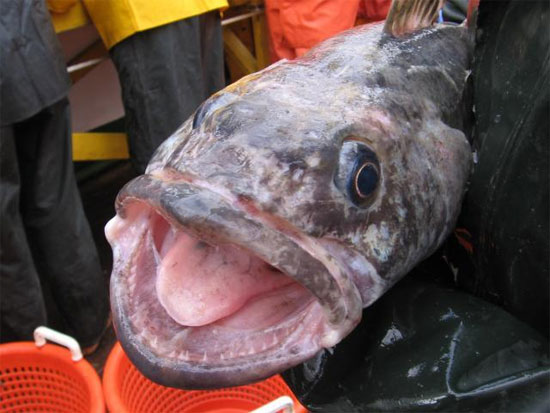 Trouble seems to follow the Chilean sea bass, a prehistoric-looking, toothy beast that lives in the chilly waters off the coast of Antarctica and nearby countries.,, nearly a quarter of fish given the stamp of approval from the Marine Stewardship Council, a leading authority on seafood sustainability, did not originate from their designated fisheries, Read more here 19:55
Trouble seems to follow the Chilean sea bass, a prehistoric-looking, toothy beast that lives in the chilly waters off the coast of Antarctica and nearby countries.,, nearly a quarter of fish given the stamp of approval from the Marine Stewardship Council, a leading authority on seafood sustainability, did not originate from their designated fisheries, Read more here 19:55
Here’a a PEW/ Oceana Puff Piece! – The Bait and Switch of Seafood Fraud, Yes. Bait and Switch!!
 That red snapper you bought at the market: Is it actually rockfish? How about the pricey local halibut you ordered for dinner: Is it really a cheap, farm-raised whitefish from Asia? What about the tuna at your favorite sushi joint — really yellowfin, as labeled, or is it bigeye with dangerous amounts of mercury? And just how “fresh” can spiny lobster be when it’s sold in July, far after the season has ended? To answer such buyer-beware questions, an ocean conservation group (?) backed by celebrities but reviled among fishermen published a study last year on “seafood fraud” in the United States. Read more here, if you can stand it. 11:24
That red snapper you bought at the market: Is it actually rockfish? How about the pricey local halibut you ordered for dinner: Is it really a cheap, farm-raised whitefish from Asia? What about the tuna at your favorite sushi joint — really yellowfin, as labeled, or is it bigeye with dangerous amounts of mercury? And just how “fresh” can spiny lobster be when it’s sold in July, far after the season has ended? To answer such buyer-beware questions, an ocean conservation group (?) backed by celebrities but reviled among fishermen published a study last year on “seafood fraud” in the United States. Read more here, if you can stand it. 11:24
Mass. Fishing industry Bill expands appeals rules for transfer of permits
![]() Proposed legislation to protect due-process rights of the holders of fisheries licenses and permits has passed the Massachusetts House and is on the way to the Senate for deliberation there. Read more@gdt 01:27
Proposed legislation to protect due-process rights of the holders of fisheries licenses and permits has passed the Massachusetts House and is on the way to the Senate for deliberation there. Read more@gdt 01:27
Our View: One fish, two fish … way too many fake fish – Was it wild salmon you ordered? Would you be surprised and disappointed to learn that you got coho instead? Read more@gdt


































